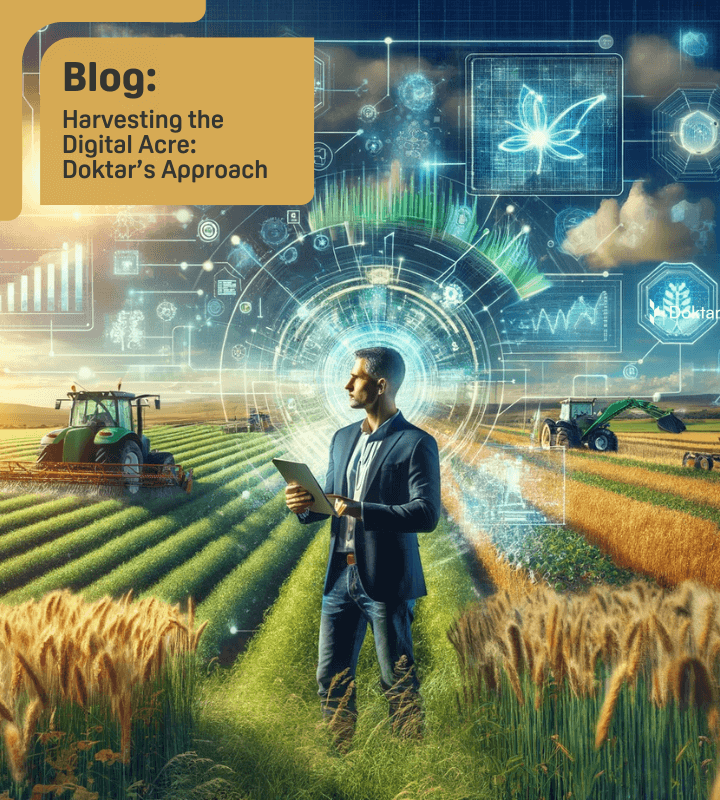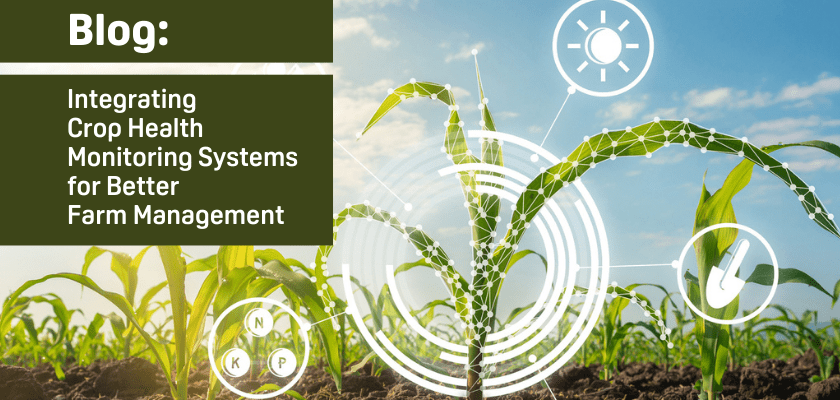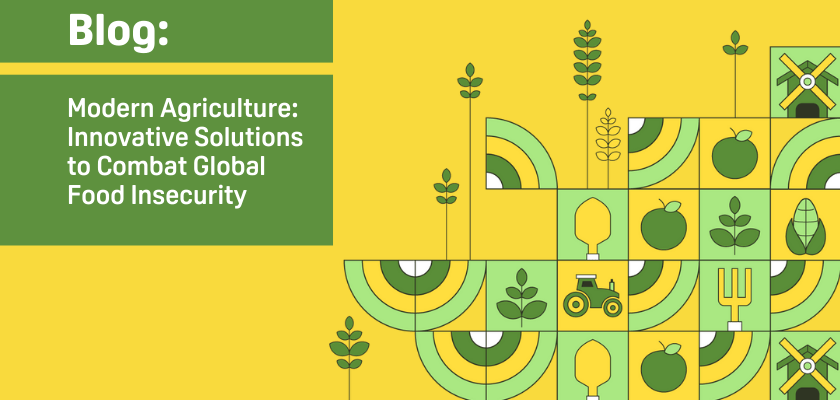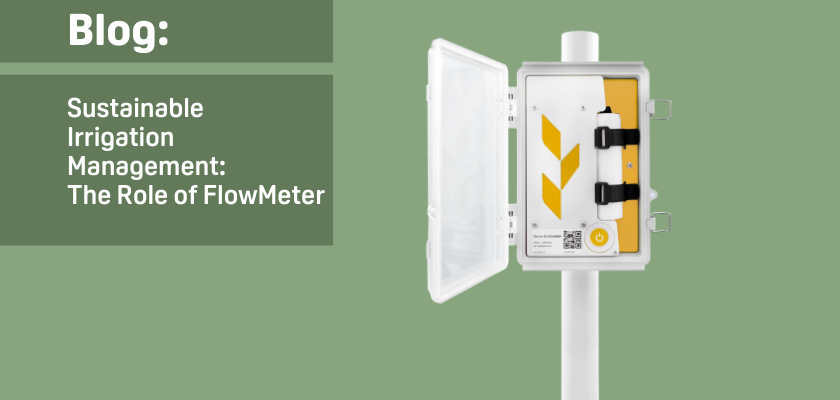

Harvesting the Digital Acre: Doktar’s Approach
Doktar's approach to harvesting the digital acre through its Climate and Sustainability Initiative is reshaping the landscape of agribusiness. By leveraging digital technologies, Doktar is not only promoting green and digital transformation but also empowering farmers and agribusinesses to thrive in the modern agricultural era.
Published on 13 February 2024
In agribusiness, digital transformation is becoming imperative, especially in contract farming. Doktar stands at the forefront of this revolution, not merely as a technology provider but as a catalyst for agricultural operations' digital and cultural transformation. This blog showcases Doktar's innovative approach to integrating digital solutions in large-scale farming practices, emphasizing the transformative power of the digital acre approach.
Digital Transformation in Agribusinesses
The significance of digital transformation in agribusiness cannot be overstated. It heralds a new era where efficiency, sustainability, and profitability are no longer mutually exclusive. In contract farming, this transformation facilitates better resource management, enhanced traceability, and improved stakeholder communication. Doktar's initiatives in this space are designed to empower agribusinesses, enabling them to harness the full potential of digital tools and methodologies to streamline their operations and achieve their sustainability goals.
What is a Digital Acre?
At the heart of Doktar's strategy is the concept of the digital acre—a comprehensive digital replica of physical fields that captures every environmental and human interaction. This model incorporates data from various sources, including IoT sensors and satellite imagery, to provide a holistic view of the agricultural ecosystem. By analyzing data on temperature, precipitation, soil structure, and human interventions like planting and harvesting, Doktar enables informed decision-making that enhances crop productivity and sustainability. The new digital layer becomes the crux of monitoring the field and optimizing every agricultural activity.
A Holistic Approach to Digital Transformation
Doktar distinguishes itself by offering a holistic approach to digital transformation, encompassing all aspects of sustainability and digital evolution under one roof. This streamlined approach eliminates the need for multiple partners, simplifying the process for companies seeking to implement sustainability and digital transformation projects. From technology provision to project implementation and monitoring, Doktar's comprehensive strategy ensures a seamless transition to more sustainable and efficient agricultural practices. Here is Doktar's standardized roadmap for this digital transformation:
Doktar's Digital Transformation Roadmap
Doktar breaks the process of digital transformation into 4 phases:
Phase 1: Gradual Transformation Design
Phase 2: Technology Deployment
Phase 3: Transformation Management
Phase 4: Monitoring, Reporting & Validation
Let's elaborate on each phase to illustrate a typical digital transformation journey with Doktar.

Phase 1: Gradual Transformation Design
Understanding that digital transformation is both a digital and cultural shift, Doktar advocates for a gradual approach. This method involves meticulous planning over multiple years, setting annual goals that build on prior successes. Such a strategy ensures that the transformation process gains momentum, expanding in scope and scale to encompass more stakeholders and hectares, creating a more significant impact. Through this careful planning, Doktar ensures that each phase of the project, from pre-season to post-harvest, is tailored to address the unique challenges and opportunities of the target group. Below are the steps for the program design:
- Grasping clients' targets and KPIs (hectares, total produce and/or tons of CO2, etc.) and the region where the program will be executed.
- Examining the current state of operations and pinpointing domains for improvement.
- Analyzing the last five years' climatic data of the target region.
- Learning target crops' average yields.
- Defining potential climatic risks for cash & cover crops.
- Understanding the regional baseline of farmers' business-as-usual practices
- Calculating the total program size to achieve the target outcome.
- Getting the client's approval on the Program Scope.
- Defining the farmer profile to be recruited for the Program.
- Determining the optimal data resolution to enhance farmers' agricultural performance.
- Deciding on the technologies to be deployed.
- Setting annual targets for each KPI.
- Developing a 12-month implementation plan for smooth execution.
Phase 2: Technology Deployment
The program design is followed by technology deployment. Central to Doktar's methodology is creating digital twins for individual fields, enabling precise monitoring and managing agricultural environments. This process begins with defining the necessary data points for optimal impact and efficient program management. Doktar selects appropriate technologies for data collection, determines the number of devices needed, and identifies the best locations for technology deployment. The suite of technologies employed—including Filiz, PestTrap, Orbit, and FieldFlow—is designed to offer comprehensive solutions for farm management, pest tracking, and soil analysis, amongst others.
- Executing digital soil analyses with SoilScanner (if possible before plantation).
- Registering fields to FieldFlow, Doktar's dedicated Digital Program Management and Reporting Platform
- Activating satellite monitoring with Orbit.
- Identifying suitable deployment locations for the chosen technologies.
- Installing Filiz and/or PestTrap according to field needs.
- Executing a kick-off meeting to set expectations and program clarification to stakeholders
- Creating farmer learning groups and capability development
- Informing the client of monthly/bi-weekly program updates
- Posting the program data into FieldFlow.
Phase 3: Transformation Management
The third phase marks the program's execution, referring to farmer empowerment, farmer engagement, and decision-making based on the digital acre data. Farmer empowerment incorporates digital and financial literacy, biodiversity, and human rights awareness. Farmer engagement monitoring occurs through multiple directions, such as WhatsApp Activation (it is designed to enable farmers to communicate regularly with each other and with the program team), Application Usage, Training Participation, Adoption of New Capabilities, Remote Support (it is designed for farmers to access technical support at any time and for new farmers to apply for the program), Online Education (technical competencies that will increase their income), Physical Farmer Visits, and Monthly Video Meetings.
Here is the implementation procedure for digital transformation programs:
- Establish a quality assurance steering committee.
- Appoint a client's program manager for daily communication.
- Form a PMO team, including field agronomists.
- Shortlist farmers for the program.
- Develop a season-long implementation plan.
- Design a curriculum for farmer empowerment.
- Making informed agricultural decisions based on field data.
- Farmer engagement monitoring in communication tools.
- Post activities on FieldFlow - Program Management Platform - for validation.
Phase 4: Monitoring, Reporting, & Validation
The commitment to digital transparency and traceability is a cornerstone of Doktar's digital transformation programs. Through the FieldFlow platform, Doktar provides real-time progress monitoring, monthly reports for steering committees, and comprehensive data analysis for program validation. This ensures that agribusinesses can track the impact of digital transformation initiatives and make informed decisions to improve program outcomes and farmer engagement.
Here is the monitoring, reporting & validation procedure for digital transformation programs:
- Create user accounts for clients and authorized 3rd parties.
- Identify key data points for program validation.
- Establish a client dashboard for real-time progress monitoring.
- Agree on monthly reports for the steering committee.
- Upload all data to the Program Management Platform (FieldFlow).
- Monitor farmer engagement monthly.
- Evaluate program results, identify improvements, and update the plan for subsequent seasons.
For those interested in exploring how Doktar's innovative solutions can transform your agricultural practices, visit our website for detailed information on all our products. Stay updated with the latest developments by following us on Instagram and LinkedIn, where we share insights, tips, and updates about our technologies and their impact on modern farming.

Integrating Crop Health Monitoring Systems for Better Farm Management
Crop health monitoring systems revolutionize modern agriculture by enabling real-time insights into plant health, reducing losses, and promoting sustainability. Tools like Doktar’s CropMap and Orbit integrate advanced technologies, empowering farmers with data-driven decisions. By enhancing efficiency and sustainability, these systems are essential for future-proofing agricultural operations.

Modern Agriculture: Innovative Solutions to Combat Global Food Insecurity
Modern agriculture combats global food insecurity with precision agriculture, sustainable practices, and biotechnology. Tools like IoT, automation, and crop innovations optimize resource use, enhance resilience, and ensure stable food supplies. By integrating smart technologies, agribusinesses address challenges like climate change and resource scarcity, paving the way for a sustainable food future.

Sustainable Irrigation Management: The Role of FlowMeter
Flow meters transform irrigation by enabling precise water measurement, reducing waste, and optimizing crop yields. Tools like Doktar’s FlowMeter empower farmers to enhance water-use efficiency, conserve resources, and lower costs. By integrating flow meters into modern farming, agribusinesses achieve sustainable irrigation solutions, address environmental challenges, and ensure long-term agricultural resilience.
